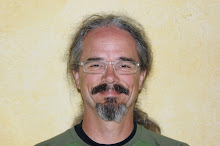Book Review
Landes, D. S. (1999). The wealth and poverty of nations: Why some are so rich and some so poor. New York, W. W. Norton & Company.
I finally got around to reading, The Wealth and Poverty of Nations. It’s an economic history of the world for the last 1,000 years. The main point of this book is to identify the reasons that make some countries financially richer than others. By indentifying these reasons then tracing the main stream of economic advances over time, David Landes (professor emeritus at Harvard) attempts to explain how we humans got to where we are today. In the processes, his beautiful command of the language was a joy to read from beginning to end.
Prof. Landes claims that in the last few hundred years we humans have passed from tinkering and observation to a owning a huge and growing mass of scientific information that is mostly useful for civilization. Further, he maintains that cultural adaptation makes the difference between rich nations and poor nations in the history of economic development.
I had difficulty determining how wealth and poverty were defined in this book. Nor was I able to understand the relationship between. What is a wealthy society? How can we tell? I am sure an economist reading this book will be disappointed to read an economic history of the world that emphasizes cultural influence.
Nevertheless, Prof. Landes insists that an historical approach will contribute to, but not provide, a complete answer to why there is a growing gap between rich and poor. According to him, a survey of historical analyses identifies two schools of thought; both have elements of truth:
· Europeans were smarter and better organized.
· Europeans were aggressive ruthless and greedy.
A third school considers the West-Rest dichotomy false and portrays Europe as a latecomer and therefore a free rider on the accomplishments of the rest of the world. But Prof. Landes dismisses this argument as simply incorrect because, he claims, the record of the last thousand years shows Europe as a leader and innovator in science and technology.
In fact, Prof. Landes’ big assumption in this book is that there is an ultimate advantage and beneficence of scientific knowledge and technological capability. I agree with this assumption. However, there are a lot of people that don’t. Whether millenarians, nostalgics, or anti-intellectuals they look for reasons that are shrouded with feelings rather than knowing.
I think Prof. Landes strayed from his thesis as he wrote this book. Starting with geography, then touching on economics, but ending up as a cultural assessment. It seems his real thesis is that it is best to be an optimist and to keep trying. For example, he points out that Great Britain, France, and Germany kept trying while China, Japan, and Islam have withdrawn from time to time over the centures. Early on in the book, hHe maintains the agnosticism of a historian, but then later, seemed to adopt the business person’s optimism of unlimited economic growth.
Prof. Landes real argument is that a pragmatic approach is the real approach. He asserts that from the historical record of international competition, globalism is a positive-sum game: everyone wins, in the long run. He does not advocate a particular policy; in fact, the less so because he feels that active intervention can make things worse as often as better.
For me, this quote sums up Landes philosophical tone in this book: “We want things to be sweet; too many of us work to live and live to be happy. Nothing wrong that; it just does not promote high productivity. You want high productivity? Then you should live to work and get happiness as a by-product” (p. 523). This sounds a bit grim, and it is hard to tell one nation from the other using this metric. Also I wonder what the Dalai Lama would have to say about it, since his fundamental principle for people is for them to be happy.
Landes himself admits that this philosophy is not easy and notes that the people who live to work are a small and fortunate elite. Elite who accentuate the positive. In closing:
In this world, the optimists have it, not because they are always right, but because they are positive. Even when wrong, they are positive, and that is the way of achievement, correction, improvement, and success. Educated, eyes-open optimism pays; pessimism can only offer the empty consolation of being right.
The one lesson that emerges is the need to keep trying. No miracles. No perfection. No millennium. No apocalypse. We must cultivate a skeptical faith, avoid dogma, listen and watch well, try to clarify and define ends, the better to choose means (p. 524).
I find this inspiring but also a bit naïve because the average Joe out there is pretty positive even though he is continually getting kicked in the balls.
This book has made a significant contribution to my understating the relationship between wealth and history. Landes erudition is amazing. Though it is likely seen as a polar opposite of Jared Diamond’s Guns, Germs, and Steel, I didn’t see it that way. Prof. Diamond sees the fates of human societies as geography based rather than Landes’ emphasis on culture. However, Landes begins Wealth and Poverty noting the unevenness of nature and that the world has never been a level playing field. “It [air conditioning] redistributes the heat from the fortunate to the unfortunate” (p. 7). This statement doesn’t seem like right-wing literature to me. I view the two books as complements to each other and having read both, I now see how much was missing from each. Writing big history must be a bitch.
A manager of an enterprise that has any concern at all about the human environment and the world from which it came would do well to read this book at some point in his career.



